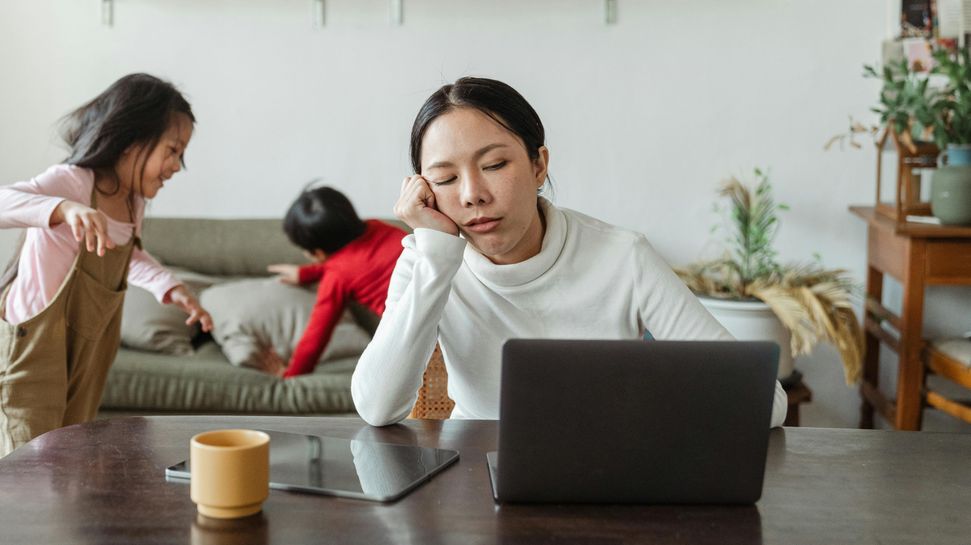Sandwiched? Me too
Find support for the mental health of the sandwich generation
Something that I didn’t consider when I began my journey into motherhood was the health of my parents.
Now I am in the stage of life of having primary school-aged children and a parent who I support with medication management and tasks of daily living.
And I find myself in a growing group of middle-agers who are sandwiched between the competing priorities of young children and ageing parents.
If you thought the invisible labor of raising children was finally getting its due, think again. Many of us are bearing the load of another set of demands; navigating care services, planning and attending appointments, fielding calls from case workers and reception staff, completing medical forms, arranging final documents and putting medication into dosing boxes. All while keeping up with the laundry, meal planning and wiping bums (of the younger generation).
With all the above, the ‘sandwiched’ generation are required to have a new level of organisation that goes beyond the usual operation of a household. And we are getting weary.

Most people in a caring role don’t identify as carers. They are daughters or sons, wives or husbands, friends or neighbours. These favours, offers, requests and tasks take time and can reduce availability for paid work.
Carers Victoria reports that:
“One in ten Victorians are unpaid carers to a family member or friend living with a disability or condition related to physical health, mental health, and/or age.”
If you find yourself in a caring role, it is important to seek support early, and often, throughout the caring journey.
In the early days, you may simply be encouraging your loved one to participate in a local activity for social support or for reablement after a health event. An amazing resource that I recommend to patients and their carers is the LiveUp website
Putting supports in place before overt decline can improve health and lengthen the independence of your loved one. I recommend observing your loved one at home and having conversations about their health goals and end-of-life preferences. It is important to have these conversations when they have capacity so you can be confident and prepared for any sudden changes in the health of your loved one.
A Home Medicine Review can assist in understanding your loved one’s medication regime. As a carer you may be able to contribute vital information that can assist the pharmacist in formulating the best recommendations for the referring doctor. You can reach out to a credentialed pharmacist at hello@glenmedicine.com for further information about this service.
I recommend that sandwich carers take time to pause, recharge, and connect with others who understand this experience. One way to find your carer community is to become a member of Carers Victoria. I love reading about their advocacy wins for carers in their monthly newsletter. You can even see a list of upcoming events and webinars.
Another option is in-person peer support groups coordinated by Carers Gateway. To connect to your local group, simply call 1800 422 737 Monday to Friday, 8am to 5pm. If you live in the Glen Eira City Council area like me, you can contact the carer support services officer on 9524 3333 or email carersupport@gleneira.vic.gov.au. Glen Eira Council carer events offer breaks and the opportunity to meet others who are in a caring role. See what's on for carers.
If you are too busy for in-person support, I recommend seeking support from an online community. Carer Gateway host an online community forum where carers can post questions and offer each other support. Finding someone who has been through a similar experience can help to lighten the mental load. They can better understand the fatigue, the repetitive explaining and the relentlessness of care. Sharing ideas with other carers can help you stay psychologically and physically healthy.
Reach Out Australia recommends leaning into your hobbies and interests to meet new people. This strategy would allow you to combine small breaks from caring with doing something you enjoy.
As the proportion of unpaid carers increases in step with the ageing population, I encourage you to reach out early to build supports for your loved one AND for yourself. Find your carer community and put on your own oxygen mask before you try to help others with theirs. Set yourself up to feel good, to build resilience and continue caring to the best of your ability.
The information in this blog is general in nature and not tailored to individual circumstances. It is not a substitute for professional medical or pharmaceutical advice. Always consult a qualified healthcare professional for guidance specific to your needs.